《Nature》 | 小小一杯茶,如何让你的心情变好?
转自:Nature自然科研
如涉版权请联系微信 iwish89
拾柒年蝉鸣谢

原文作者:Natasha Gilbert
科研人员正在研究茶叶中的成分如何能够改善情绪,提高注意力,甚至对抗抑郁和痴呆。
几个世纪以来,世界各地的人们都亲身体会了茶叶放松心情、提振精神的功效。茶树固有的镇静作用使茶水——茶树叶制成的饮品——不再局限于解渴之用,它还被用于帮助冥想,舒缓神经或者是简单的放松。尽管广大茶爱好者都普遍认可茶的精神安抚作用,但是科学家们才刚刚开始研究茶究竟是如何对情绪和认知产生影响的。
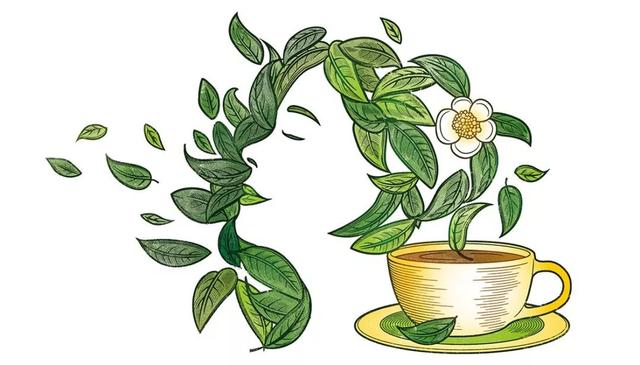
来源:Susan Burghart
例如,研究人员发现,喝茶能降低压力激素皮质醇的浓度。关于饮茶具有长期健康益处的证据也正逐步浮现:每天饮用至少100毫升(约半杯)的绿茶似乎可以降低患抑郁症和失智症的风险。
科学家们还试图鉴定使茶具有精神安抚作用的主要活性成分,以及它们是单独发挥作用还是与茶中的其他成分协同作用。儿茶素——如表没食子儿茶素没食子酸酯 (Epigallocatechin gallate,EGCG)等抗氧化剂,占烘干绿茶茶叶重量的42%,L-茶氨酸约占3%。EGCG被认为可以使人更加平静,单独服食能够提高记忆力和注意力; L-茶氨酸与咖啡因一同食用时具有类似作用。在绿茶中含量高达5%的咖啡因可改善情绪,提高警觉性和认知能力。
澳大利亚斯威本科技大学的精神药理学家Andrew Scholey表示,茶对行为似乎有一种略显矛盾的作用,“茶虽然能让人平静,但同时又能够提高人的警觉性。”他一边喝着伯爵红茶一边说。
在人们对营养学在心理健康和预防医学中的作用日益产生兴趣的时候,对茶行为学和心理健康影响的探索也就顺理成章地开始了。医生需要更多的方法应对焦虑、抑郁和年龄相关的认知能力下降——这些情况给卫生系统带来了沉重的负担,而目前的治疗方案却很有限。
“我们并没有很多选择的余地,”Scholey说,“食物可能可以帮助减缓认知衰退的想法对于预防医学来说意义重大。”
瑞士巴塞尔大学的神经精神病学家Stefan Borgwardt同样对目前可用治疗方法之少感到遗憾,他说大约三分之一的焦虑和抑郁患者从始至终都未曾找到有效的治疗方法。
但他对茶对于临床抑郁症患者可能具有的益处持谨慎态度。“不要过分夸大茶的作用,这一点很重要。”他说。尽管有明显证据表明在健康人群中,茶对情绪有一定改善作用,但目前的研究尚不能证明茶可以帮助罹患精神疾病的人。此外,研究人员需要进一步了解茶中的活性成分的作用机制,以及产生短期和长期影响所需的成分剂量。
不要小看一杯茶!
茶可是一笔大生意。它是全球最常饮用的饮料之一,并且整个茶产业正在崛起。根据联合国粮食及农业组织的预测,全球绿茶产量将每年增长7.5%,到2027年达到360万吨。Scholey说,尽管茶在全球十分流行,但令人意外的是,人们对它的行为学影响却知之甚少。现有的证据大部分来自流行病学研究,这些研究普遍认为茶对情绪和认知功能具有积极的调节作用。例如,今年早些时候有研究人员发表研究说,在韩国的健康人群中,习惯日常饮用绿茶的人一生罹患抑郁症的可能性比不喝茶的人低21%。
Borgwardt认为这项韩国研究表明茶的作用是“相对明显的”,与每周运动2.5小时效果相当。流行病学研究表明,长期饮用绿茶或能降低痴呆的风险。其中一项研究在新加坡55岁以上的人群中展开,该研究发现,即便是那些每周只喝一杯茶的人,他们在记忆和信息处理方面的表现也优于不饮茶的人。
但流行病学研究存在局限性。Borgwardt认为其他生活方式因素或遗传因素也可能导致产生最终的阳性结果。
“很多研究表明饮茶与某些变化相关,但其研究方法无法探究变化究竟是如何发生的。”英国诺桑比亚大学的生物心理学家David Kennedy说。
一种可能的混杂因素便是制备和饮用茶水的过程,而不是茶本身。
2007年,伦敦大学学院的心理学家Andrew Steptoe进行了一项研究,探究茶的放松效果是来源于直接的生物学作用,还是来源于喝茶时的具体场景,譬如安静地坐下来休息。“喝茶通常在有助于放松的环境中进行,而这些环境条件本身可能是所谓‘放松作用’的主要原因。”Steptoe说。
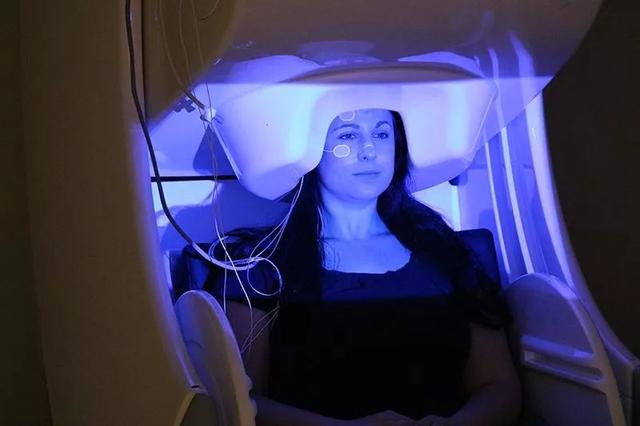
图片来源:斯威本神经影像学中心
Steptoe团队研究了饮用红茶对于健康男性的作用,对照组饮用的则是含有咖啡因的安慰剂。茶和安慰剂都以水果味粉末呈现,且颜色与茶相近,以尽可能减少两种饮料之间的外观差异。研究发现,茶可以帮助人们更快地从高压任务中恢复过来。在任务进行50分钟后,饮茶组受试对象唾液中的压力激素皮质醇水平降至基线水平的53%,而对照组则仅下降至基线的73%。饮茶组的受试对象也表示,相较于对照组,他们感觉更加放松。
究竟是哪些成分在促进大脑活动?
研究人员也开始探索茶的有益作用究竟来自于哪些成分。有关茶叶核心成分的分析表明,L-茶氨酸和EGCG可以单独发挥作用,也能与咖啡因产生协同效应。
2016年,Scholey及其同事报道称,和摄入安慰剂的对照组相比,饮用含有200毫克L-茶氨酸(约为8杯茶的L-茶氨酸含量)的营养饮料的志愿者,在完成高压任务后皮质醇水平较低,且自我感觉更加放松。研究人员还使用脑磁图(MEG)评估了饮茶相关的大脑活动变化。那些饮茶前相对焦虑的人在饮茶后出现了更多的低频脑电波——α振荡活动。α-脑电波与放松和缺乏主动认知信息处理相关。
在之前的一项研究中,Scholey发现同时摄入L-茶氨酸和咖啡因可以改善记忆和反应速度,而且这种效果优于单独摄入咖啡因或L-茶氨酸。Scholey说,单独摄入L-茶氨酸的最终效果是“放松、自信的状态——你在自己的舒适区里”。他认为这种接近冥想的状态在一定程度上是通过L-茶氨酸只放松了不需要执行任务的脑区实现的,MEG分析也支持了这一推测。“L-茶氨酸改善了信噪比——不是通过增加信号,而是通过降低噪声,”他说,“这可以提高注意力。”
据Borgwardt介绍,L-茶氨酸可以通过多种方式进行脑化学调节。它可以通过血脑屏障,因此可以直接增强脑可塑性,即大脑自我再生的过程。它还可以作用于下丘脑-垂体-肾上腺轴(身体的应激反应系统),降低皮质醇和压力水平。动物实验表明,L-茶氨酸还可以通过提高神经递质GABA(γ-氨基丁酸)水平来缓解焦虑。
绿茶的另一个主要成分——EGCG似乎也是促使茶产生精神安抚作用的因素之一。在一项详细的研究中,Scholey通过脑电图比较了饮用含EGCG营养饮料和安慰剂的受试对象的大脑活动。饮用EGCG饮料的受试对象在不同频带都出现了大脑活动的增加:除了之前提到的α波,还有θ波(与深度放松的潜意识状态有关),以及β波(在精神集中时会明显增加)。该研究表明,含EGCG饮料能够促进精神放松和保持专注。动物实验和体外研究表明,EGCG能够通过血脑屏障直接作用于大脑,并可能通过改善血管状态和促进一氧化氮供应来改善认知功能。
尽管大量研究对茶的精神安抚作用进行了探索,但仍有许多未解之谜。研究人员仍然不了解茶的各种成分如何协同作用。已知咖啡因有益于改善情绪和认知,对其生化特性的研究也相对透彻——腺苷是一种对睡眠具有调控作用的物质,咖啡因通过阻止腺苷与其受体结合,维持神经活动,使饮用者感觉更清醒。但对于咖啡因如何与EGCG相互作用,我们仍知之甚少。咖啡因和L-茶氨酸在认知功能方面是否存在相互促进作用目前也不明确。
只有搞清楚这些问题,研究人员才可能更准确地了解茶的长期效果及其在情绪或精神障碍患者中可能实现的应用。对于包括Scholey在内的一些研究人员来说,茶对情绪和认知的影响引发人思考更深层次的问题。譬如,大脑为什么没有进化到不再需要外来混合饮料便能以最佳状态运作呢?
Borgwardt表示,目前没有理由不鼓励健康人群将喝茶作为改善情绪、提高注意力的手段。他说,在调节情绪方面,喝茶可以作为运动的一种更轻松的补充,甚至作为替代。 “为什么不喝一杯好茶呢?”他说, “这比一周跑三次容易多了!”
原文以The science of tea’s mood-altering magic为标题
发布在2019年2月6日的《自然》outlook上
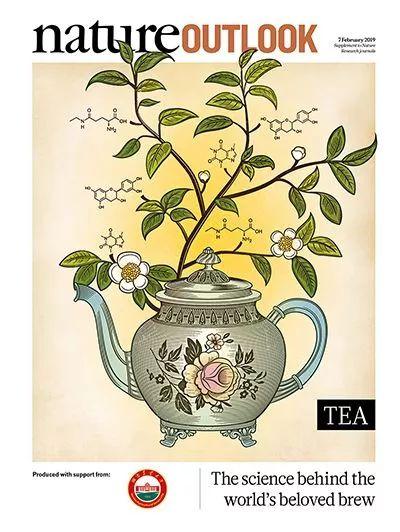
ⓝ
Nature|doi:10.1038/d41586-019-00398-1
英文原文
The science of tea’s mood-altering magic
Researchers are discovering how the ingredients in a cup of tea can lift mood, improve focus and perhaps even ward off depression and dementia.
Natasha Gilbert
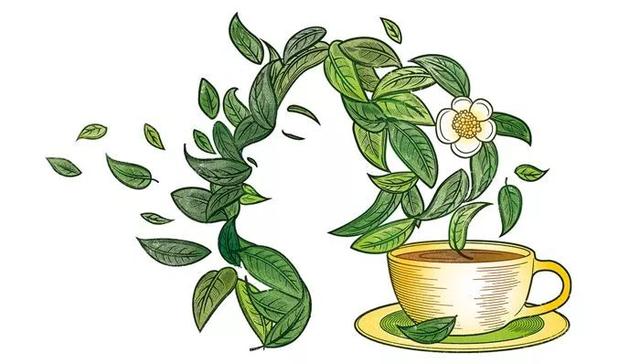
For centuries, people across the globe have testified to the relaxing and invigorating qualities of tea. The traditional calming effects of the plant Camellia sinensishave elevated the drink, which is produced from its leaves, to a role beyond quenching thirst — it is drunk as an aid for meditation, to help soothe the nerves or simply to unwind. But although the mental-health benefits ofC. sinensisare common knowledge among tea drinkers, scientists are only now beginning to examine how tea exerts its effects on mood and cognition.
Researchers have found, for instance, that drinking tea lowers levels of the stress hormone cortisol. And evidence of long-term health benefits is emerging, too: drinking at least 100 millilitres (about half a cup) of green tea a day seems to lower the risk of developing depression and dementia.

Scientists are also trying to identify the major active compounds that give tea its mental-health benefits, and whether they work alone or in combination with other compounds present in the drink. Tea catechins — antioxidants such as epigallocatechin gallate (EGCG) — account for up to 42% of the dry weight of brewed green tea, and the amino acid L-theanine makes up around 3%. EGCG is thought to make people feel calmer and improve memory and attention when consumed on its own. L-theanine is found to have a similar effect when consumed in combination with caffeine. Up to 5% of the dry weight of green tea is caffeine, which is known to improve mood, alertness and cognition.
The effect of tea on behaviour is slightly paradoxical, says Andrew Scholey, a psychopharmacologist at Swinburne University of Technology in Melbourne, Australia. “Tea is calming, but alerting at the same time,” he says, while sipping a cup of Earl Grey tea.
Explorations into the effects of tea on behaviour and mental health come at a time of growing scientific interest in the role of nutrition in mental health and preventive medicine. Physicians need more ways of tackling anxiety, depression and age-related cognitive decline — these conditions place a huge burden on health systems, and treatment options are limited.
“There isn’t much out there,” says Scholey. “The idea that maybe dietary agents can help slow the decline could have enormous implications for preventative health.”
Stefan Borgwardt, a neuropsychiatrist at the University of Basel, Switzerland, similarly laments the lack of available therapies — around one-third of all people with anxiety and depression never find an effective therapy, he says.
But he is cautious about the benefits tea can have for people who are clinically depressed. “It’s important not to overestimate the effects,” he says. Although there is clear evidence of moderate improvements to mood in healthy populations, studies have yet to demonstrate that tea can help people with mental illness. In addition, researchers need to strengthen their understanding of how the active constituents of tea act on the body, as well as the doses required to produce short- and long-term effects.
Benefits of a brew
Tea is big business. It is one of the most commonly consumed drinks in the world, and the industry is on the rise. Worldwide, the production of green tea is expected to grow at an annual rate of 7.5%, reaching 3.6 million tonnes in 2027, predicts the Food and Agricultural Organization of the United Nations. Given tea’s prominence, surprisingly little is known about its effects on human behaviour, says Scholey. Much of the evidence available comes from epidemiological studies, which generally show a positive effect on mood and cognitive function. Earlier this year, for example, researchers reported that in a healthy Korean population, those who habitually drank green tea were 21% less likely to develop depression over their lifetime than those who were non-drinkers1.
Borgwardt says the Korean study shows that tea has “a relatively strong effect”, on a par with that of 2.5 hours of exercise per week. Epidemiological studies suggest that long-term habitual consumption of green tea might reduce the risk of dementia. One study of people aged over 55 in Singapore, for example, found that those who drank as little as one cup of tea per week performed better at memory and information-processing tasks than did non-tea-drinkers2.
But epidemiological studies have limitations. Other lifestyle factors or genetics could be responsible for the positive results, says Borgwardt.
“Lots of research shows something is happening with tea. But the way the research is done doesn’t elucidate what is happening,” says David Kennedy, a biological psychologist at Northumbria University in Newcastle, UK.
One possible confounding factor is that the process of preparing and drinking tea is having the effect, not the tea itself.
In 2007, Andrew Steptoe, a psychologist at University College London, investigated whether tea’s relaxing effects are a direct biological outcome or derived from the social context in which the drink is consumed, such as sitting down quietly for a rest. “Tea is frequently consumed under conditions that are conducive to relaxation that may themselves be responsible for the apparent benefits,” Steptoe says.

Steptoe and his team examined the effect in healthy men of drinking black tea compared with a caffeinated placebo. The tea and the placebo were presented as fruit flavoured powders, coloured like tea to mask any differences between the two drinks. The researchers found that tea helped people to recover more quickly from a stressful task3. Saliva levels of the stress hormone cortisol fell to 53% of baseline levels within 50 minutes of the task for the tea-drinking group, compared to 73% of the baseline for the placebo drinkers. The tea drinkers also said they felt more relaxed than did those who drank the placebo.
Brain-boosting ingredients
Researchers are also starting to look at which compounds give tea its beneficial properties. Tests of the key constituents — L-theanine and EGCG — suggest that they contribute alone and in combination with caffeine.
In 2016, Scholey and his colleagues reported that volunteers who consumed a nutrient drink containing 200 milligrams of L-theanine — around the amount found in eight cups of tea — had lower cortisol levels and reported feeling more relaxed after performing stress-inducing tasks than did those who consumed a placebo4. The researchers also used magnetoencephalography (MEG) to assess changes in brain activity associated with the drink. People who were naturally more anxious showed an increase in lower-frequency brainwaves, known as alpha oscillatory activity. Alpha brainwaves are associated with relaxation and a lack of active cognitive processing.
In a previous study, Scholey found that L-theanine improved memory and reaction time when consumed with caffeine — and that the effect was greater than that of caffeine or L-theanine alone5. The upshot of L-theanine’s contrasting effects is a “relaxed, capable state of mind — you are in the zone”, says Scholey. He suspects that this meditative state is achieved, in part, by L-theanine relaxing only the areas of the brain not needed to perform tasks, as shown by the MEG analysis. “It improved the signal-to-noise ratio — not by increasing the signal, but by decreasing noise,” he says. “This allows improved focus and attention.”
L-theanine could act on brain chemistry in several ways, says Borgwardt. The compound passes through the blood–brain barrier, so it could directly benefit brain plasticity — the process through which the brain regenerates itself. It could also act on the hypothalamic pituitary adrenal axis (the body’s stress response system), reducing cortisol and stress levels. Animal tests suggest that L-theanine also boosts the neurotransmitter GABA (γ-aminobutyric acid), which in turn reduces anxiety.
The other major constituent of green tea, EGCG, also seems to contribute to the drink’s mental-health benefits. In a detailed study, Scholey used electroencephalography to compare the brain activity of people consuming either an EGCG-containing nutrient drink or a placebo. The EGCG drinkers experienced an increase in brain activity across all bandwidths: alpha waves; theta waves, which are associated with quiet wakefulness; and beta waves, which increase with focus and attention. The study suggests that the EGCG drink nurtured a relaxed and attentive state of mind6. Animal and in vitrostudies7 have shown that EGCG can pass through the blood–brain barrier to act directly on the brain, and that it might improve the health of blood vessels and boost the supply of nitric oxide that together could benefit cognitive function.
Although research on the mental-health benefits of tea is ramping up, much is still unknown. Researchers still don’t understand how tea’s constituent compounds work together. Caffeine is known to benefit mood and cognition, and its biochemistry is widely understood — it stops the sleep-controlling chemical adenosine from binding to its receptors, helping to maintain neural activity and making caffeine-drinkers feel more awake. But little is known about how caffeine interacts with EGCG. Similarly, it is not clear whether caffeine boosts the cognitive effects of L-theanine or vice versa. It will be necessary to resolve such uncertainties before researchers can pin down more precisely tea’s long-term benefits and its possible use for people with mental-health conditions. And for some researchers, including Scholey, tea’s effects on mood and cognition give rise to even deeper and more esoteric questions. For instance, why has the brain not evolved to perform optimally without the need to consume chemical brews?
For now, there is no reason not to encourage healthy people to drink tea as a means of improving their mood and focus, says Borgwardt. Tea drinking could provide a leisurely addition, or even an alternative, to the mood-boosting effects of exercise, he says. “Why not have a nice cup of tea?” he says. “It’s easier than running three times a week!”
年后返场超级无敌特惠
原价499元
现价298元
立省201元
限时抢:2月17日晚12:00结束
长按二维码购买

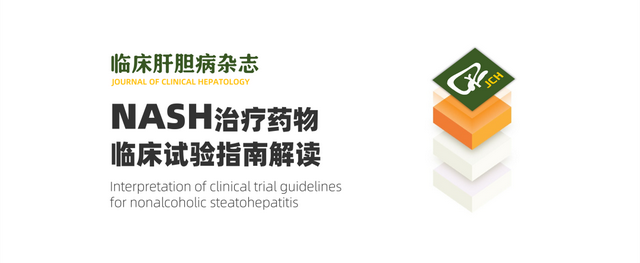















评论